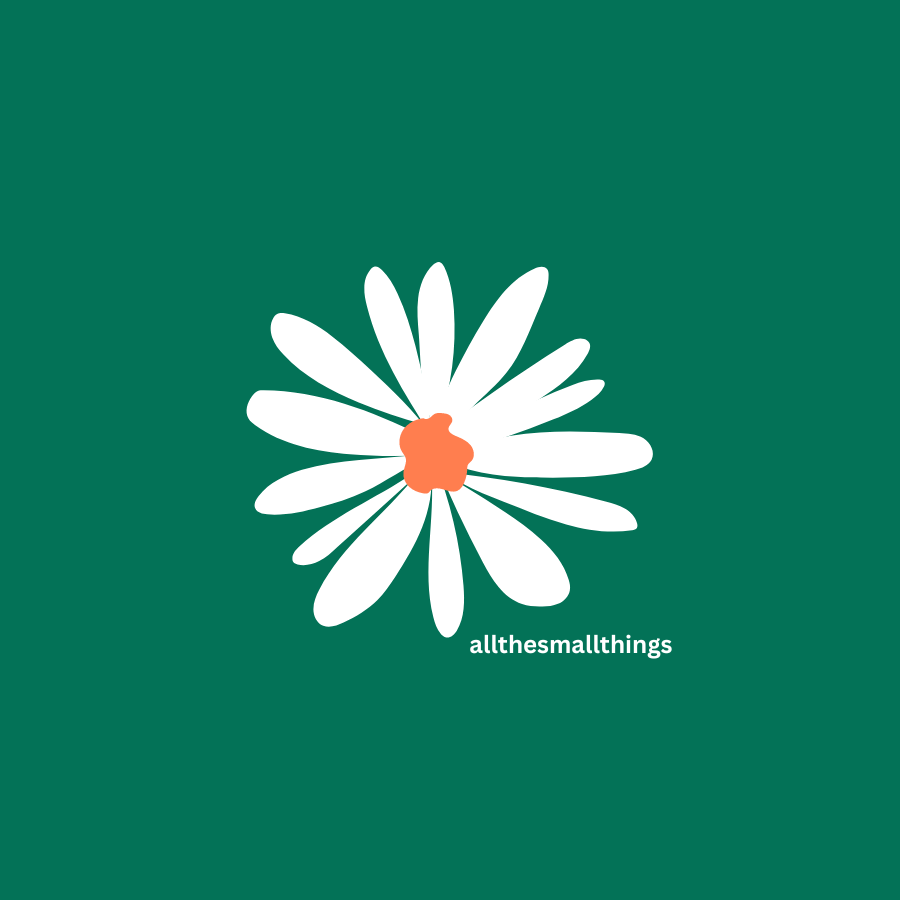Genius or Diligent?
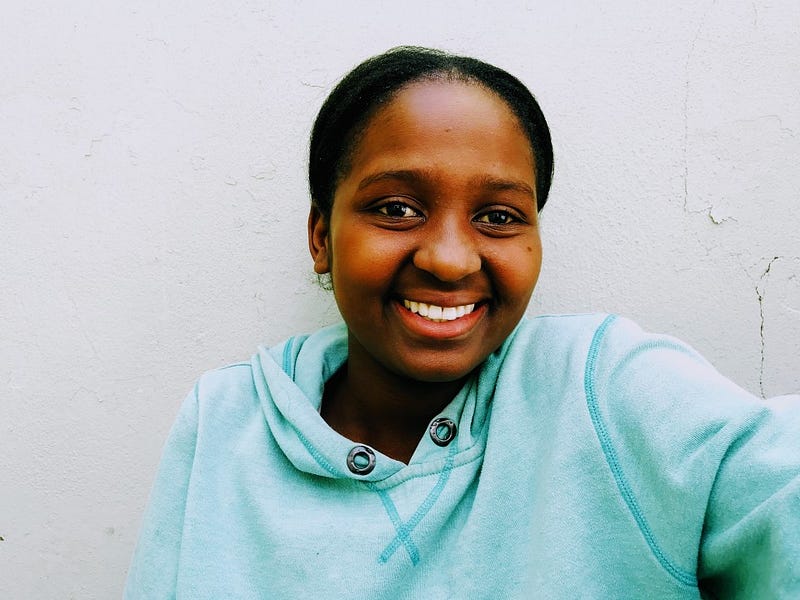
Meet Avuzwa — a 13-year-old girl from Nyanga, one of South Africa’s most populous and dangerous townships. Avuzwa dreams of being a doctor one day. She’s a hard-working, curious girl who is passionate about reading. Her marks are good but not great, and she knows that this will pose challenges further down the line. “You need A’s to study medicine, but I struggle a little with maths and science. In Grade 7 the work got hard,” she told us.
Since July 2020, Avuzwa has been part of a Mindjoy learning pod. At Mindjoy, we’re building learning communities that inspire a love of learning. Avuzwa is precisely the kind of kid who flourishes in this environment.
Avuzwa is currently enrolled for her second Mindjoy programme which means she will soon finish 16 weeks of Mindjoy learning. Her initial baseline assessments showed that she was somewhat behind in the mastery of concepts associated with her current grade. But now she’s caught up, and progressed beyond the necessary outcomes for her current grade! Since July, Avuzwa has mastered two and a half grades of maths by learning the Mindjoy way (measured against international benchmarks and curricula). Yes, that’s amid a global pandemic that caused massive disruption to children’s education.
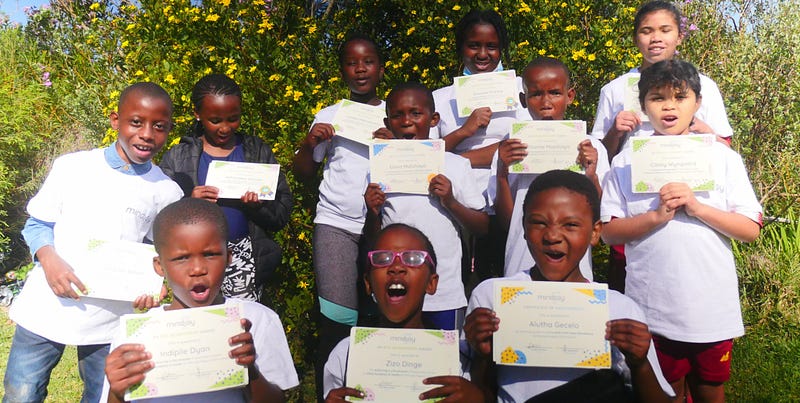
You probably have a bunch of questions right now :) Let’s dive into the data and details.
How Mindjoy learning works
Mindjoy in a nutshell
Mindjoy functions in 8-week cycles. Every eight weeks, children can enrol for a cohort. Each child completes a baseline assessment at the start and end of a cycle. Establishing individual baselines allow us to customise learning support based on each child’s needs, ensure each child is working within their zone of proximal development, and also enable us to track progress over time. Khan Academy enables us to deliver quality content, assign differentiated practice for learners and track their progress.
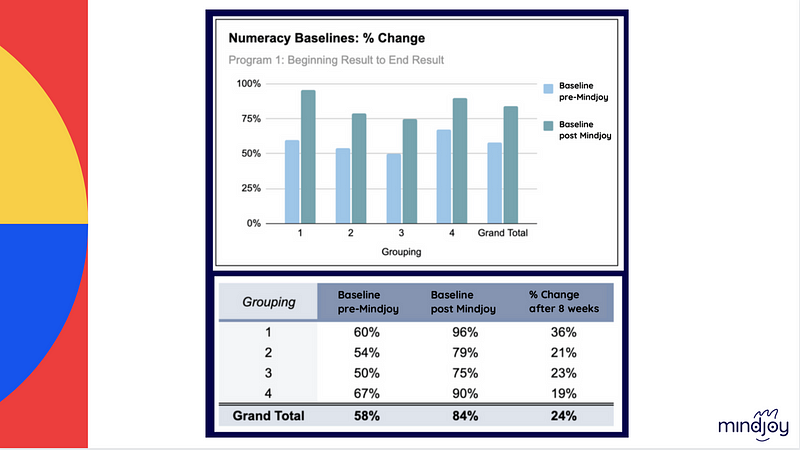
Mindjoy learners are grouped into pods for the duration of the cohort. A pod is a small group (4–12 children) clustered based on skill. They have a dedicated community coach, are on similar learning paths, and attend lessons together. Children who are in Grades 5 and up also have tutors who assist them with subject-specific content.
We leverage existing apps for individualised learning by using adaptive learning apps and a digital library (accessible via mobile phones), mobile data, structured lessons, and real-world projects.
Practice time: the only number that needs to go up
At Mindjoy, we have a mastery-based approach to learning. Learners only move on to new content once they have mastered the necessary concepts. Given this approach, effective learning has three core ingredients:
- Excellent learning content;
- The opportunity to work within one’s optimal growth-zone;
- Time spent practicing.
The graph below shows the correlation between the amount of time children spent practicing and their rate of skill development and acquisition. (This data comes from Mindjoy Cohort 2).
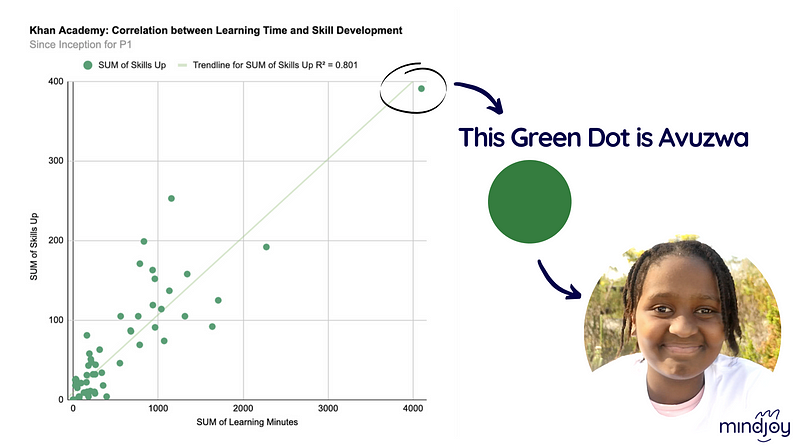
By leveraging existing adaptive learning tools (Khan Academy, Khan Kids, Get Epic!, and Lalilo), we provide children with the first two ingredients on this list. The third ingredient, time spent practicing, is brought about by fostering the soft skills that will help children take charge of their own learning. This is where community coaches equipped with the Mindjoy way make all the difference.
Building confidence, collaboration, curiosity, resilience, and composure
Learning is a multifaceted process because human growth and achievement are about more than access to technology and information. That’s why community coaches are such a fundamental part of Mindjoy.
Community coaches are there to encourage kids, hold them accountable, and help them build good learning habits through daily practice. We measure learning habits in four different ways:
- Minutes spent practicing on Khan Academy apps;
- Minutes spent practicing on reading apps;
- Showing up for class;
- Task completion.
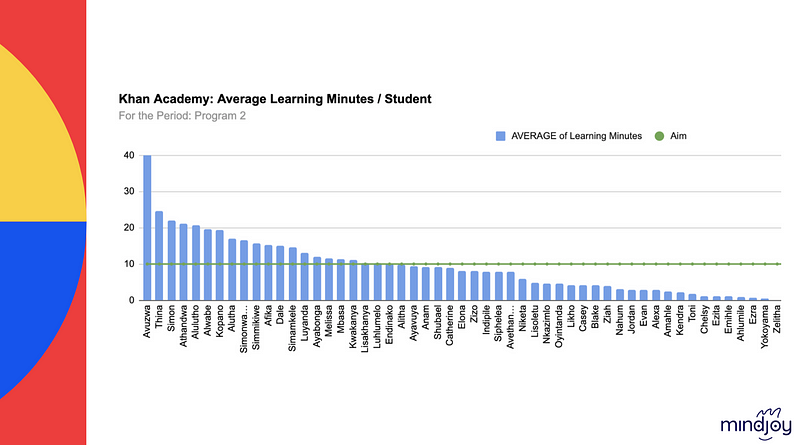
By closely monitoring children’s learning habits, community coaches are able to engage with children and facilitate the development of soft skills. Mindjoy’s coaches are specifically trained to foster the following skills in children:
- Confidence: the capacity to believe in one’s own abilities, even when others are watching.
- Collaboration: the capacity to work with peers to solve problems and to deal with conflict effectively.
- Curiosity: the capacity to try new things and feel inspired to discover more by one’s own volition.
- Resilience: The capacity to keep trying even when it feels hard, and the ability to bounce back from adversity.
- Composure: the capacity to stay on task and practice managing one’s own thoughts, feelings, and body.
These skills are important for children to succeed at Mindjoy, but more importantly, it’s the skills required to succeed in an ever-changing world as happy, disciplined, and innovative individuals.
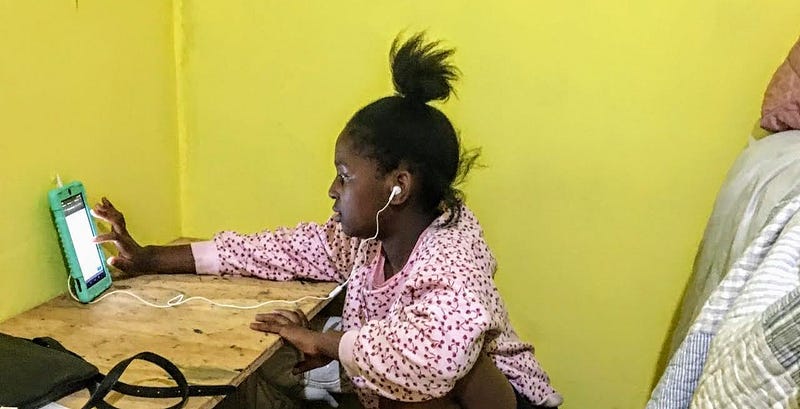
Genius or diligent?
There’s one thing you still don’t know about Avuzwa at this stage: she doesn’t go for tutoring and her IQ is not off the charts. What is off the charts is her discipline, and her enthusiasm to put in the practice time. She has spent more than 4000 minutes practicing maths, and that’s what fueled her achievement.
What we can learn from her, however, is that if given the opportunity and with the necessary educational infrastructure and community support, an ordinary South African child, despite their incredible challenges, is able to achieve extraordinary things.
To help us enable more villages to educate their children, please like and share this story!
Big thanks to Helené van Tonder for helping me write this article :)
